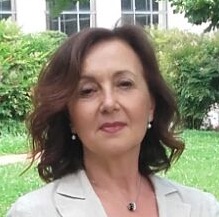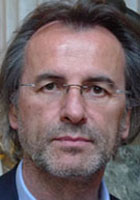Studying at the University of Verona
Here you can find information on the organisational aspects of the Programme, lecture timetables, learning activities and useful contact details for your time at the University, from enrolment to graduation.
Academic calendar
The academic calendar shows the deadlines and scheduled events that are relevant to students, teaching and technical-administrative staff of the University. Public holidays and University closures are also indicated. The academic year normally begins on 1 October each year and ends on 30 September of the following year.
Course calendar
The Academic Calendar sets out the degree programme lecture and exam timetables, as well as the relevant university closure dates..
| Period | From | To |
|---|---|---|
| Sem. IA | Oct 1, 2014 | Nov 16, 2014 |
| Sem. IB | Nov 17, 2014 | Jan 18, 2015 |
| Sem. IIA | Feb 23, 2015 | Apr 19, 2015 |
| Sem. IIB | Apr 20, 2015 | Jun 7, 2015 |
| Session | From | To |
|---|---|---|
| Sessione Estiva (Esami sospesi dal 14 al 16 luglio) | Jun 8, 2015 | Jul 31, 2015 |
| Sessione Autunnale | Sep 1, 2015 | Sep 30, 2015 |
| Sessione Invernale | Jan 18, 2016 | Feb 21, 2016 |
| Session | From | To |
|---|---|---|
| Sessione Estiva | Jul 14, 2015 | Jul 16, 2015 |
| Sessione Autunnale | Nov 10, 2015 | Nov 12, 2015 |
| Sessione Invernale | Mar 14, 2016 | Mar 17, 2016 |
| Period | From | To |
|---|---|---|
| Festa di Ognissanti | Nov 1, 2014 | Nov 1, 2014 |
| Festa dell'Immacolata Concezione | Dec 8, 2014 | Dec 8, 2014 |
| Vacanze Natalizie | Dec 22, 2014 | Jan 6, 2015 |
| Vacanze Pasquali | Apr 2, 2015 | Apr 7, 2015 |
| Festa della Liberazione | Apr 25, 2015 | Apr 25, 2015 |
| Festa dei lavoratori | May 1, 2015 | May 1, 2015 |
| Festa del S. Patrono S. Zeno | May 21, 2015 | May 21, 2015 |
| Festa della Repubblica | Jun 2, 2015 | Jun 2, 2015 |
| Vacanze Estive | Aug 10, 2015 | Aug 16, 2015 |
Exam calendar
Exam dates and rounds are managed by the relevant Humanistic Studies Teaching and Student Services Unit.
To view all the exam sessions available, please use the Exam dashboard on ESSE3.
If you forgot your login details or have problems logging in, please contact the relevant IT HelpDesk, or check the login details recovery web page.
Should you have any doubts or questions, please check the Enrollment FAQs
Academic staff
 donato.desilvestri@univr.it
donato.desilvestri@univr.it
 linda.napolitano@univr.it
linda.napolitano@univr.it
 annamaria.piussi@univr.it
annamaria.piussi@univr.it
 cristina.richieri@univr.it
cristina.richieri@univr.it
Study Plan
The Study Plan includes all modules, teaching and learning activities that each student will need to undertake during their time at the University.
Please select your Study Plan based on your enrollment year.
1° Year
| Modules | Credits | TAF | SSD |
|---|
Un insegnamento a scelta tra i seguentiUn insegnamento a scelta tra i seguentiUn insegnamento a scelta tra i seguenti2° Year activated in the A.Y. 2015/2016
| Modules | Credits | TAF | SSD |
|---|
un insegnamento a scelta tra i seguentiUn insegnamento a scelta tra i seguenti| Modules | Credits | TAF | SSD |
|---|
Un insegnamento a scelta tra i seguentiUn insegnamento a scelta tra i seguentiUn insegnamento a scelta tra i seguenti| Modules | Credits | TAF | SSD |
|---|
un insegnamento a scelta tra i seguentiUn insegnamento a scelta tra i seguenti| Modules | Credits | TAF | SSD |
|---|
Legend | Type of training activity (TTA)
TAF (Type of Educational Activity) All courses and activities are classified into different types of educational activities, indicated by a letter.
Problems of Contemporary Philosophy (2015/2016)
Teaching code
4S003374
Teacher
Coordinator
Credits
6
Language
Italian
Scientific Disciplinary Sector (SSD)
M-FIL/06 - HISTORY OF PHILOSOPHY
Period
Sem. IA dal Sep 28, 2015 al Nov 8, 2015.
Learning outcomes
We aim at teaching the use of philosophical terminology and the critical reading of philosophical texts, in order to acquire basic philosophical matters and concepts. Also, through seminars and debates, we aim at making postgraduates to acquire a skill to cross-examination.
A general knowledge of the history of modern and contemporary philosophy (XIX and XX Centuries) is presupposed and only some points will be specifically deepened. An attention to lexical research and an interest in a critical reading of philosophical texts and to arguments are very useful.
Program
Philosophies of Dialogue.
In XXth century some thinkers and trains of thought have proposed forms of “Socratic dialogue”. It is applied in various spheres: pedagogic (J. Dewey, L. Nelson, M. Nussbaum), philosophical (M. Buber, K. Jaspers), psyco-therapeutic (V. Frankl) e in the so-called “philosophical practices” (P. Hadot, L. Marinoff). In every one of these spheres Socratic dialogue is proposed as a methodical procedure and as an existential / relational attitude which is particularly efficacious, moreover – sometimes – as the prominent form of self-care. We aim at confronting with these contemporary restarts and verify, on Plato’s Dialogues, whether and how much this procedure, to the extent that it names itself “Socratic”, is indebted to the archetypical original model. This is in turn a prominent and indispensable form of the àskesis (or “spiritual exercise”) proper to Plato’s Socrates.
Bibliography:
a) General Part on the history of contemporary philosophy, particularly: Nietzsche; American pragmatism (Peirce, James, Dewey); phenomenology (Husserl, Scheler); German existential philosophy (Jaspers, Rosenzweig, Buber); Heidegger; birth and evolution of human sciences (psycholoy and psychoanalisis); new rhetoric; hermeneutics; practical philosophy.
Basic text: E. BERTI-F. VOLPI, Storia della filosofia. Ottocento e Novecento, Roma-Bari Laterza 1991 and subsequent editions.
b) Lecture Notes available at photocopy shops “Ateneo” and “La Rapida”:
Dispensa 1: Introduzione. Testi tratti dagli autori contemporanei;
Dispensa 2: Il dialogo socratico come pratica filosofica. Passi scelti e commentati dai Dialoghi di Platone (a c. di L. Napolitano)
-A text chosen among:
L.M. NAPOLITANO VALDITARA, Il sé, l’altro, l’intero. Rileggendo i Dialoghi di Platone, Milano-Udine Mimesis 2010;
L.M. NAPOLITANO VALDITARA Virtù, felicità e piacere nell’etica dei Greci, Verona aemme Edizioni 2014;
P. HADOT, Esercizi spirituali e filosofia antica, tr. it. Torino 2005;
M. C. NUSSBAUM, Non per profitto. Perché le democrazie hanno bisogno della cultura umanistica, tr. it. Bologna 2011.
Lessons will be available by e-learning.
Didactical Methods:
The course will be carried on by frontal lessons, with direct reading of the texts and following discussions. Therefore attendance at classes will be very useful and desirable, though obviously not compulsory.
The same program is valid for students who cannot attend lessons; nevertheless, they must get in touch with the teacher, in order to receive indications on adding texts, whose reading will compensate for lacking attendance: these texts will be agreed for every student, with regard to his previous knowledge, curriculum and interests.
Examination Methods
Ways of evaluation:
Some oral questions will be put to the student; he will be invited to read and comment some passages of the original texts already read together during classes.
Type D and Type F activities
Modules not yet included
Career prospects
Module/Programme news
News for students
There you will find information, resources and services useful during your time at the University (Student’s exam record, your study plan on ESSE3, Distance Learning courses, university email account, office forms, administrative procedures, etc.). You can log into MyUnivr with your GIA login details: only in this way will you be able to receive notification of all the notices from your teachers and your secretariat via email and soon also via the Univr app.
Student mentoring
Graduation
Documents
| Title | Info File |
|---|---|
|
|
pdf, it, 99 KB, 13/10/23 |
|
|
pdf, it, 101 KB, 10/04/24 |
List of theses and work experience proposals
| theses proposals | Research area |
|---|---|
| Psicoanalisi | Psychology - Psychology, Psychoanalysis |
Gestione carriere
Linguistic training CLA
Practical information for students
Documents
| Title | Info File |
|---|---|
|
|
pdf, it, 325 KB, 02/05/23 |
|
|
pdf, it, 212 KB, 02/05/23 |
|
|
pdf, it, 131 KB, 02/05/23 |
Stage e Tirocini
Per le altre attività formative (crediti F) sono previsti 9 cfu (pari a 225 ore) da acquisire solamente attraverso l’attività di tirocinio obbligatoria, a sua volta suddivisa in:
- tirocinio indiretto (1 cfu: 25 ore di frequenza obbligatoria in università per il 75%) in preparazione dell’attività formativa sul campo;
- tirocinio diretto (8 cfu), da svolgersi presso enti convenzionati.
L’ordinamento didattico della LM in Scienze pedagogiche prevede che il tirocinio indiretto a frequenza obbligatoria si svolga in università per il 75% nel secondo anno (1 CFU: 25 ore).
Il tirocinio indiretto consiste in un accompagnamento iniziale delle/degli studenti da parte dei tutor attraverso un percorso di formazione della durata di 25 ore.
La finalità di questo percorso è quella di preparare le/gli studenti alla particolare forma di apprendimento costituita dal tirocinio, dotandoli di conoscenze e strumenti adeguati a osservare, comprendere e rielaborare criticamente l’esperienza di tirocinio nei servizi educativi e ad affrontare il tirocinio negli enti con metodo e consapevolezza.
Il percorso, da attuare in gruppi da 20-25 persone sotto la supervisione di un tutor proveniente dal mondo professionale di educatori e pedagogisti, risponde alle esigenze costantemente espresse sia dalle/dagli studenti stessi sia dalle parti sociali che dai referenti degli enti convenzionati.
Nuove Linee Guida per il tirocinio di Scienze pedagogiche.
- Tutte le informazioni in merito agli stage per futuri studenti sono disponibili alla pagina Stage e tirocini.
- Tutte le informazioni in merito agli stage per studenti iscritti sono pubblicate in MyUnivr - come fare per - stage e tirocini.
- Tutte le informazioni in merito agli stage per le aziende sono disponili alla pagina Stage e tirocini per azienze.

 0458028142
0458028142

















